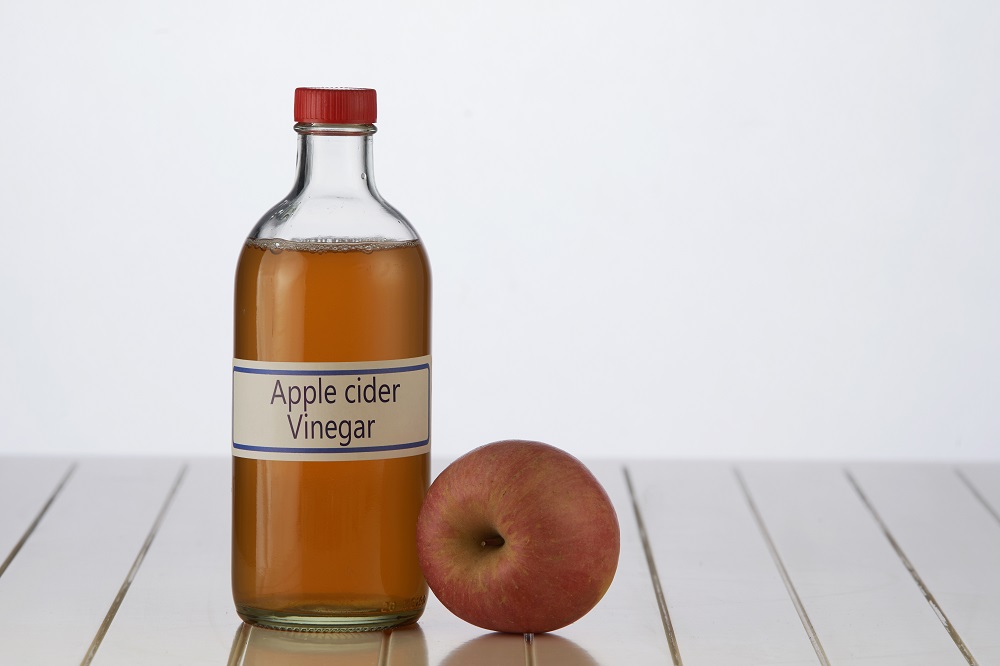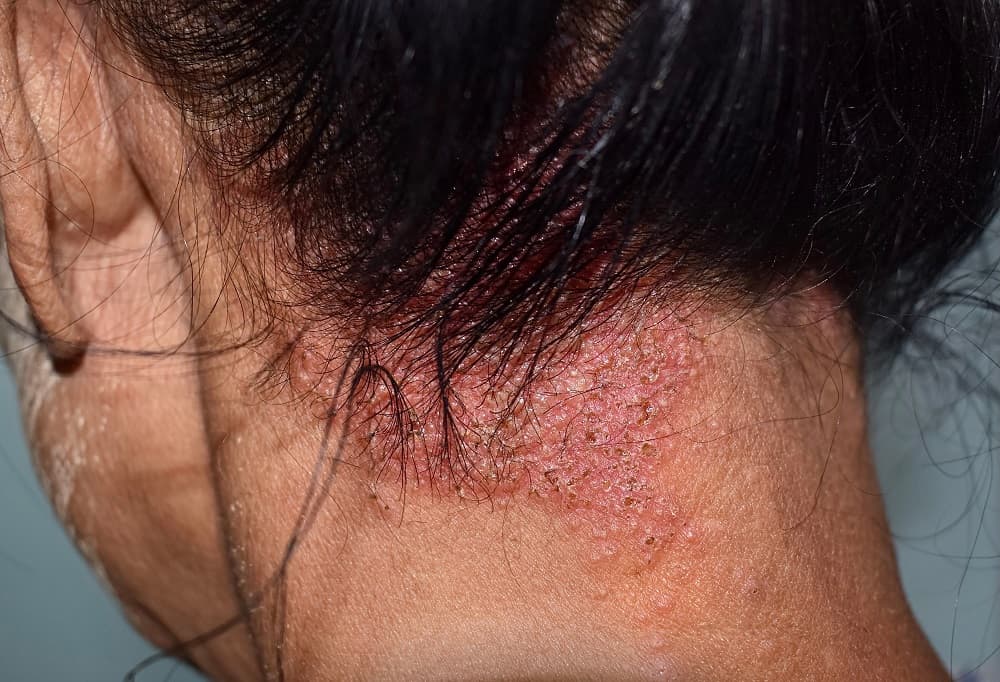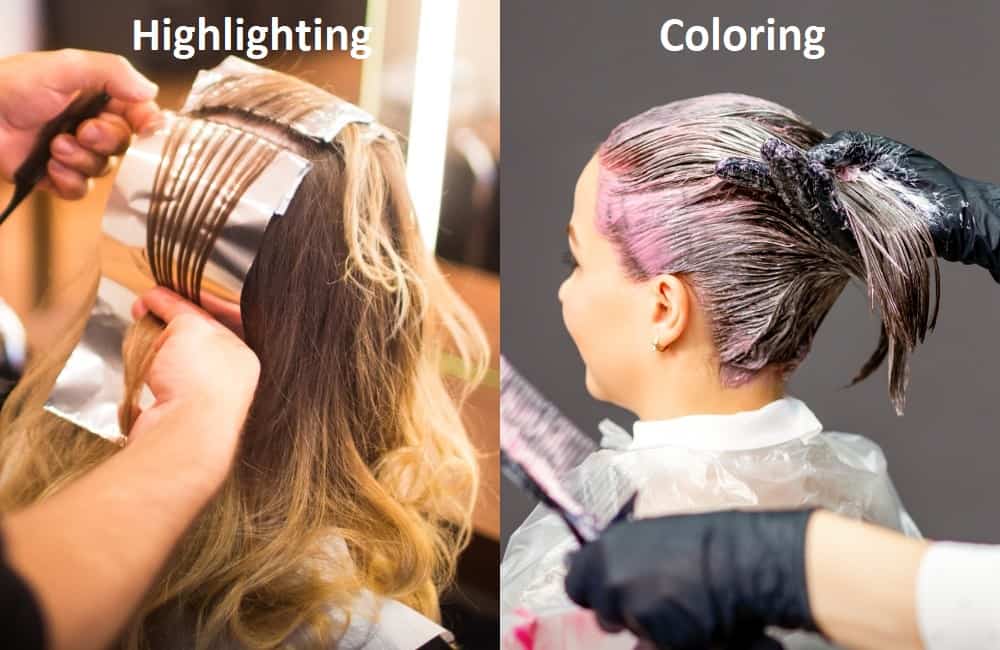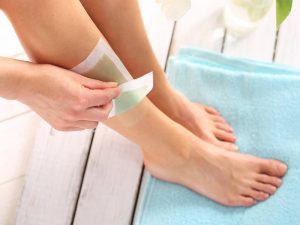If you have curly hair that you’ve been chemically straightening for a long time, you might be wondering if using hair relaxers can cause hair loss.
Like most other processes, the answer usually depends on the original condition of your hair, whether it’s been dyed or bleached, and how many other processes you’ve already done.
Before we answer the question about hair loss, here are some important facts about hair that you need to know:
What is Hair Made of?
Hair is made of a hard, fibrous protein called keratin. Hair strands are formed from stem cells at the base of hair follicles located on the surface of the skin’s epidermal layer.
Breaking Bonds – How Do Hair Relaxers Work to Straighten Hair?

Hair is held together by hydrogen and disulfide bonds. The disulfide bonds are among the strongest naturally occurring bonds in the world.
These bonds must be “broken” or altered, to change the texture of a hair strand. When you relax or straighten your hair, you’re breaking those bonds and resetting them in a permanently straight configuration.
The chemicals in hair relaxers (usually sodium hydroxide, ammonium thioglycolate, and sodium thioglycolate) generate extremely high heat, which breaks apart the disulfide bonds. Once the bonds are broken, there’s no turning back; the only way to get rid of the straightened hair is by cutting it off.
Relaxed Hair Vs. Natural Hair
Do Chemical Relaxers Cause Hair Loss?
Sometimes.
Even when used prudently, chemical hair relaxers can make hair brittle, dry, and prone to breakage. And let’s face it, most people who decide to straighten their hair in the first place are probably already dealing with hair that’s curly and dry.
So, if you’re starting out with unhealthy hair and then performing chemical processes on it, there’s a chance that some type of hair loss could occur.
RELATED BEST 10 ON AMAZON:
| IMAGE | TITLE | TRENDS | SEE MORE |
|---|
 | SoftSheen-Carson Optimum Salon Haircare Optimum Care Defy Breakage No-Lye Relaxer, Regular Strength for Normal Hair Textur... | 28060 | MORE VIEW |
|---|
 | Moroccan Keratin Most Effective Brazilian Keratin Hair Treatment 120ml Professional Salon Formula Shipping Available World... | 2984.2 | MORE VIEW |
|---|
 | Originals by Africa's Best Kids Natural Conditioning Relaxer System With Scalpguard (Regular Kit) Fortified and Enriched w... | 2741.2 | MORE VIEW |
|---|
 | Avlon Affirm Sensitive Scalp Conditioning Relaxer (9 Single Applications) | 3624 | MORE VIEW |
|---|
 | Clairol Natural Instincts Demi-Permanent Hair Dye, 7A Dark Cool Blonde Hair Color, Pack of 1 | 24716.4 | MORE VIEW |
|---|
 | OGX Renewing + Argan Oil of Morocco Intense Hair Moisturizing Treatment, 3-in-1 Conditioner, Deep Conditioning Treatment &... | 5328 | MORE VIEW |
|---|
 | Hawaiian Silky Sensitive Scalp Keratin Conditioning Relaxer Super 20oz No lye For Natural Hair - 100% Real Jojoba & Mink O... | 2373.6 | MORE VIEW |
|---|
 | Savannah Hair Therapy Deep Conditioning Hair Mask for Dry Damaged Hair and Growth with Shea Butter 16.9oz, Sulfate Free Ke... | 956.8 | MORE VIEW |
|---|
 | Olaplex Hair Perfector No 3 Repairing Treatment | 510126 | MORE VIEW |
|---|
 | Olaplex Hair Perfector No 3 Repairing Treatment | 510126 | MORE VIEW |
|---|
 | Sponsored Ad -BOLDIFY Hair Fibers for Thinning Hair (MEDIUM BROWN) Undetectable & Natural - 28g Bottle - Hair Powder - ... | 100078 | MORE VIEW |
|---|
 | Cantu LeaveIn Conditioning Repair Cream 16 oz, Shea Butter, (Pack of 1) | 76788 | MORE VIEW |
|---|
 | Cantu LeaveIn Conditioning Repair Cream 16 oz, Shea Butter, (Pack of 1) | 76788 | MORE VIEW |
|---|
 | BOLDIFY Root Touch Up Powder (Dark Brown) - Hairline Powder Instantly Conceals Hair Loss, Stain-Proof 48 Hour Formula, Hai... | 45588.4 | MORE VIEW |
|---|
 | BOLDIFY Root Touch Up Powder (Dark Brown) - Hairline Powder Instantly Conceals Hair Loss, Stain-Proof 48 Hour Formula, Hai... | 45588.4 | MORE VIEW |
|---|
 | Cantu Grow Strong Strengthening Treatment with Shea Butter, 6 Ounce | 40185 | MORE VIEW |
|---|
 | Cantu Grow Strong Strengthening Treatment with Shea Butter, 6 Ounce | 40185 | MORE VIEW |
|---|
 | Toppik Hair Building Fibers 27.5g | Fill In Fine or Thinning Hair | Instantly Thicker, Fuller Looking Hair | 9 Shades for ... | 37085.2 | MORE VIEW |
|---|
Tips: "Amazon, Amazon Prime, the Amazon logo and Amazon Prime logo are trademarks of Amazon.com, Inc. or its affiliates". AS AN AMAZON ASSOCIATE, WE EARN AFFILIATE COMMISSIONS FROM QUALIFYING PURCHASES.





















